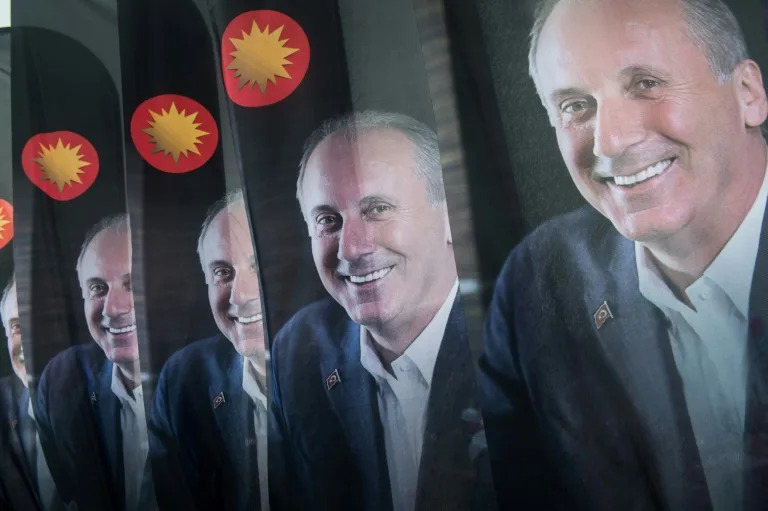
Philipp Jedicke
DW
03/02/2023
The first King Kong movie was released in March 1933. As the iconic beast turns 90, here's a look at different versions of the classic story.
As one of the best-known monsters in film, King Kong is an international pop culture phenomenon alongside popular superheroes and comic book characters.
The first "King Kong" film was made in 1933, and was the brainchild of Merian C. Cooper, directed and produced together with Ernest B. Schoedsack.
A concoction of adventure, horror and fantasy, "King Kong" remains a pioneering technical masterpiece, featuring early use of stop-motion photography and special effects by Willis H. O'Brien.
The film was also one of the first ever to have a special music score composed to accompany it.
Released in US theaters on March 2, 1933, it became a huge success and the inspiration for fairground attractions, video games and a series of 12 "King Kong" films.
'King Kong'
The original "King Kong" takes as a starting point that gorilla stories were in demand in the 1930s, as settings that seemed "exotic' in the eyes of US moviegoers often became box office hits.
So a film crew led by director Carl Denham sets out to find a giant gorilla on the fictional Skull Island, near Indonesia, where Kong is worshiped as a god by the natives.

The original 'King Kong' from 1933Image: picture alliance/United Archives
The film crew captures him and brings him back to New York to present him to the public. Overwhelmed, King Kong breaks free from his shackles and flees.
Obsessed with Ann Darrow, the lead actress from the film crew, King Kong kidnaps her and takes her to the top of the Empire State Building, where he is shot to death by US military aircraft. Ann Darrow survives unharmed.
King Kong, who was much more brutal in the uncut version than in the final cut, is shown not only as a perpetrator but also as a victim of human greed.
In Nazi Germany, the film was initially banned by censors, but Adolf Hitler liked the film and allowed its release.
'Son of Kong'
The sequel came out the same year.
The story takes place a month after Kong's death. Carl Denham is liable for Kong's havoc. Facing bankruptcy from lawsuits, he flees to Captain Englehorn's ship. After numerous adventures, Denham ends up back on Skull Island for a treasure hunt together with Englehorn, a singer called Helene, and another shady captain by the name of Helstrom.
Little Kong fights backs in 'Son of Kong' (1933)
Image: Everett Collection/IMAGO
They encounter Kong's son, an albino giant ape, whom they rescue from quicksand. In the end, Kong Junior returns the favor when the island is hit by an earthquake. He brings Denham and Helene back to the boat before drowning in the ocean surrounding the sinking island.
'King Kong vs. Godzilla'
The first King Kong film in color came out in 1962 as a Japanese film in the Kaiju monster genre. Directed by Ishiro Honda, it was also the third Godzilla film.
"King Kong vs. Godzilla" tells the story of the prehistoric dinosaur Godzilla breaking free from an iceberg and threatening to destroy Japan. At the same time, King Kong, captured by scientists, arrives in Japan. The giant gorilla escapes, runs into Godzilla, attacks him, and loses. As a result, he is forced to retreat.
The scientists send Kong to fight Godzilla again. Kong feeds on electricity voltage, which makes him stronger than ever.
During their final battle on Mount Fuji, the two beasts cause chaos and destruction. The battle climaxes with a fall into the sea, where Godzilla is defeated and King Kong swims back to his home island.

The Japanese kaiju films were directed by Ishiro Honda
Image: United Archives/picture alliance
'King Kong Escapes'
The 1967 Japanese sequel was also directed by Ishiro Honda. Like its predecessor and the entire Godzilla series, the film was produced by Toho.
This time, the giant gorilla Kong is clearly the good guy of the film, infatuated with a nurse named Susan.
A mad scientist named Dr. Who is failing to mine a radioactive element in the Arctic with the help of his robot Mechani-Kong — created in the image of King Kong. So, he abducts Kong, hoping he will get him to finish the job.
Kong manages to escape, but Mechani-Kong chases him up to the Tokyo Tower for a final showdown between the two apes. Kong wins and yet again swims back to his homeland.
King Kong fights with a giant dinosaur and his robot double in 'King Kong Escapes' (1967)
Image: picture alliance/United Archives
'King Kong' — the first remake
In the 1976 film, King Kong gets a modernized remake of the original story: An oil company disrupts Kong's peaceful island existence and abducts him to New York.
The film, directed by John Guillermin, stars Jessica Lange and Jeff Bridges. Producer Dino De Laurentiis had a 12-meter-tall mechanical King Kong figure built especially for the film, which cost $1.7 million (€1.6 million) and was completely covered with horse hair. But unfortunately, the model was defective and could only be seen for a few seconds in the finished film. For the remaining scenes, special effects had to be used.

Jessica Lange starred in the 1976 remakeImage: picture alliance/Everett Collection
'King Kong Lives'
Ten years later, the sequel "King Kong Lives" followed. John Guillermin was also the director, but the cast completely changed.
Kong did not die in his fall from the Empire State Building, but was in a coma for a decade, hooked up on life-support. After receiving a blood transfusion from a female giant ape named Lady Kong, Kong awakens, kidnaps the female, and flees from the military.
After they mate, the couple is discovered by soldiers and Lady Kong is imprisoned while Kong is presumed dead.

Lady Kong is also a fierce beast: A scene from 'King Kong Lives' (1986)
Image: picture alliance/Everett Collection
Months later, Kong kidnaps the pregnant ape again. in the end, the couple is confronted by the military and Kong dies from the soldiers' bullets after witnessing the birth of his son. Lady Kong and Kong's son are then taken back to their native Island of Borneo.
'King Kong'
In 2005, star director Peter Jackson ("The Lord of the Rings") fulfilled a childhood dream by venturing into the King Kong material. According to Jackson, the original "King Kong" had sparked his career as a filmmaker.
Shot in New Zealand, Jackson's remake stars Naomi Watts, Adrien Brody and Jack Black.
Naomi Watts portrays Ann Darrow in Peter Jackson's 'King Kong' (2005)
Image: picture-alliance/Mary Evans Picture Library
Jackson followed the 1933 original very closely in terms of plot. He also recreated a spider scene that was removed from the original film by censors in the 1930s.
The critically-acclaimed film garnered several award nominations and won three Oscars, but had a slow start at the box office.
'Kong: Skull Island'
2017's "Kong: Skull Island" is the second film in the MonsterVerse multi-media franchise, which produces blockbuster movies starring the likes of King Kong, Godzilla, and other Toho monsters.
Hollywood stars Tom Hiddleston, Brie Larson, John C. Reilly, Samuel L. Jackson and John Goodman star in Jordan Vogt-Roberts' fantasy adventure film.
In real life, the apelike-beast would be more than 30 meters (around 100 feet) tall, making it the tallest King Kong in the franchise to date.
 A very large ape in 'Kong: Skull Island' (2017)Image: Legendary Entertainment/Zuma/IMAGO
A very large ape in 'Kong: Skull Island' (2017)Image: Legendary Entertainment/Zuma/IMAGO
The remake is set in the early 1970s, when a squad of soldiers, government officials and civilians explores a mysterious island. Their helicopter is brought down and they quickly find out that a giant ape lives on the island.
Although this is the "king" of the island, there are many other monsters against which the group must assert itself.
The role of war photographer Weaver, played by Brie Larson, is quite different from the original Ann Darrow character, the passive actress.
New King Kong blockbuster set to hit theaters in 2024
After the great success of "Kong: Skull Island," which grossed $567 million (approx. 534 million euros) worldwide, "Godzilla vs. Kong" followed in 2021.
An untitled Godzilla vs. Kong project is now set to be released in 2024. It will be the fifth film in the MonsterVerse franchise.
As the iconic giant ape turns 90, King Kong remains a box-office star.
This article was originally written in German.




















 A very large ape in 'Kong: Skull Island' (2017)Image: Legendary Entertainment/Zuma/IMAGO
A very large ape in 'Kong: Skull Island' (2017)Image: Legendary Entertainment/Zuma/IMAGO



